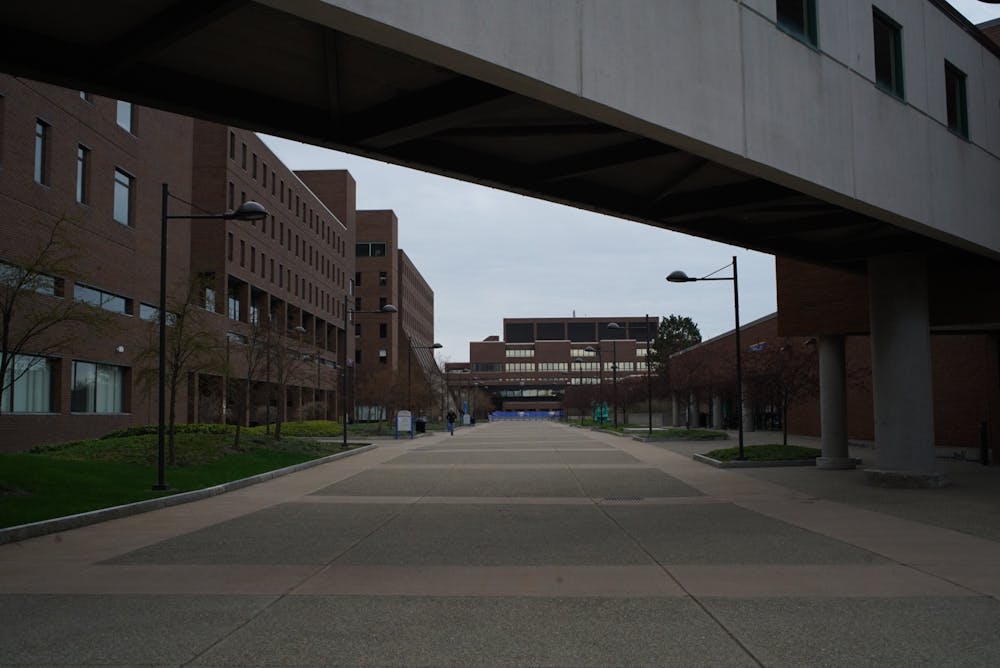The Faculty Senate Executive Committee declined to add student wellness days to the spring calendar during a Wednesday afternoon meeting, choosing instead to encourage professors “to be flexible” with grading and assignments.
The FSEC’s Academic Policies and Grading Committee met Tuesday with Student Association Assembly Speaker Austin Wolfgang to discuss the breakless calendar, which the Faculty Senate Executive Committee passed last October.
The subcommittee recommended to the FSEC that members “encourage them [professors and faculty] to be flexible.”
Such communication to faculty would “presumably” take the form of an email sent by Faculty Senate Chair Robert Miletich, according to Michael Cowen, chair of the Academic Policies and Grading Committee. Faculty members are not bound by this motion.
The motion gained the support of 74% of the executive committee members, with just 11% voting no. The remaining 16% of senators abstained.
The motion will now be voted on by the full Faculty Senate, presumably at its meeting next Tuesday. It does not require promulgation by UB President Satish Tripathi.
The Academic Policies and Grading Committee’s motion calls on faculty members — if they haven’t already — to make “adjustments that may reduce stress while preserving learning outcomes. Specific measures that some faculty… might wish to provide include: relaxing assignment deadlines; offering to drop the lowest exam, quiz or homework grade in the course; allowing students to retake exams without penalty; shifting exam format to open book; adding extra credit assignments; surveying students for suggestions; and even offering ‘rejuvenation days’ by relaxing attendance policies.”
With only three full weeks of classes remaining in the spring semester, the Academic Policies and Grading Committee’s recommendations effectively ended any chance of student wellness days.
“While this is definitely not the solution that the Undergraduate Student Association was hoping for, I think it’s definitely the right step,” Wolfgang, the only SA official to attend the meeting, said in comments to the Executive Committee before the vote. “Thank you guys for taking the time to hear out our concerns and [for] working with us to try to alleviate them and support the student body.”
Wolfgang authored and introduced a March SA Assembly resolution, called A2021-R4, which requested that the Faculty Senate and Tripathi “to immediately amend the current academic calendar” to add student wellness days. The resolution became the impetus for the Academic Policies and Grading Committee’s report, as well as talks between SA officials and administrators that ultimately ended in a stalemate.
The Academic Policies and Grading Committee met with Wolfgang Tuesday in a closed-door meeting to discuss possible solutions, which included wellness days, canceling classes “in an emergency manner” (similar to snow days) and making some days of synchronous learning asynchronous.
The committee rejected the wellness days proposal, arguing that implementing them this late in the semester “would violate accreditation standards, federal and state credit hour requirements and financial aid regulations,” according to the committee’s report.
Emergency cancelations were rejected due to potential “ambiguous regulation compliance” and the chance they would simply compound students’ workloads. A shift from synchronous to asynchronous learning was rejected due to negative feedback from students whose professors had tried such a strategy.
Following its Tuesday meeting, the committee met with Wolfgang, Miletich, Dean of Undergraduate Education Ann Bisantz and others Wednesday morning to finalize and write the report they presented to the Executive Committee.
“The committee understands that [accomodations] may not be possible or desirable in all courses, but a reduction in stress in some courses would still benefit students,” the committee’s report reads.
Grant Ashley is an assistant features editor and can be reached at grant.ashley@ubspectrum.com

Grant Ashley is the editor in chief of The Spectrum. He's also reported for NPR, WBFO, WIVB and The Buffalo News. He enjoys taking long bike rides, baking with his parents’ ingredients and recreating Bob Ross paintings in crayon. He can be found on the platform formerly known as Twitter at @Grantrashley.





